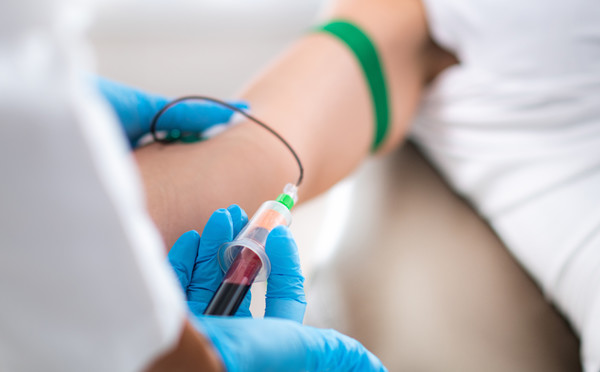A shortage of intravenous immunoglobulin (IVIG) has created an emergency for the treatment of pediatric patients.
The reason: the decrease in blood donations since the Covid-19 pandemic has led to a decrease in the raw materials used to make immunoglobulin and low drug prices.
According to medical sources, the supply of immunoglobulin in children's hospitals has already run out. University hospitals are preparing for alternative immunoglobulin treatments in case their stocks run out.
The Korean Pediatric Society has requested the Ministry of Food and Drug Safety to resolve the immunoglobulin shortage and met with immunoglobulin manufacturers, including GC and SK Plasma, on Monday last week to discuss ways to improve the supply but failed to find a solution.
The manufacturers receive plasma from the Korean Red Cross at a low price to make immunoglobulin.
However, as domestic blood donations have declined, the raw materials have become scarce, leading to an increased reliance on imported plasma. Still, the low price of domestic drugs compared to the significantly increased price of imported plasma had made it difficult for them to profit.

According to the Ministry of Health and Welfare, the number of blood donations last year totaled about 2.64 million, down from 2.61 million in 2020. Compared to nearly 2.8 million in 2019, blood donations dropped by nearly 200,000. As a result, the domestic plasma supply for plasma fractionation products has decreased, increasing dependence on imports.
Domestic use of plasma supplied for plasma fractionation stood at 568,040 liters (81.4 percent) in 2016. Still, it decreased to 474,103 liters (45.6 percent) last year. On the other hand, the amount of plasma imported from abroad increased nearly fourfold, from 129,753 liters in 2016 to 564,822 liters in 2022.
“We ran out of immunoglobulin at our hospital, and it's been some days since we used it on our last patient,” said Choi Yong-jae, vice chairman of the Korean Children's Hospital Association. "We can't use it anymore because we don't have the medicine. Pharmaceutical companies lose money if they make and distribute drugs in Korea. It's frustrating that they export drugs when we don't even have drugs to use in Korea."
Dr. Eun Byung-wook, director of insurance at the Korean Pediatric Society, said, "The problem is quite serious from the perspective of pediatrics and adolescence. We must use the scarce immunoglobulin sparingly and only for children who need it. It's hard to get enough right now, so the problem (of not getting treatment) could become serious through September."
He went on to say, "I understand that the supply is almost exhausted in children's hospitals. In university hospitals, it's enough to get by without a shortage. However, since the quarantine has been relaxed after the Covid-19 pandemic waned, Kawasaki disease is rising again. The demand is increasing, and the supply (of treatment) is not available, so we are preparing for immunoglobulin replacement treatment.”
Eun noted that it was difficult to find a solution (to the plasma fractionation drug supply problem) because there are so many problems intertwined, adding that pharmaceutical companies do not want to supply sufficient volumes in Korea because they can earn more money if they export overseas.
"The food and drug safety ministry offers to shorten the period of government tests before selling plasma fractionation products. Still, it does little to solve the current situation,” Eun said. “The ministry, the Ministry of Health and Welfare, and the Health Insurance Review and Assessment Service all should work together to solve the problem to prevent the reimbursement issue from working as a stumbling block.”

